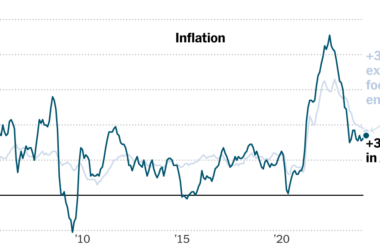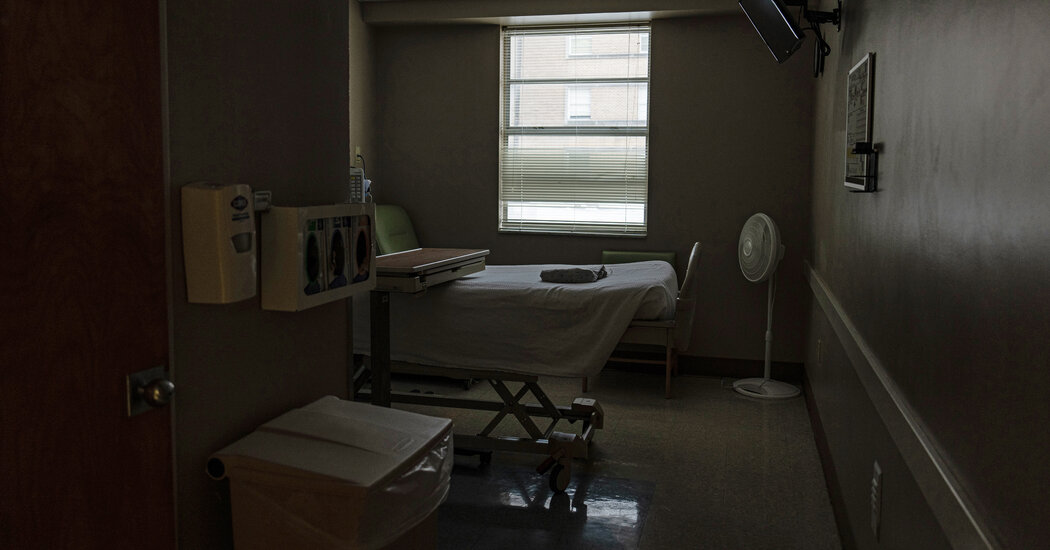Over the previous decade, R.I.P. Medical Debt has grown from a tiny nonprofit group that obtained lower than $3,000 in donations to a multimillion-dollar power in well being care philanthropy.
It has finished so with a singular and easy technique to tackling the big quantities that Individuals owe hospitals: shopping for up previous payments that will in any other case be bought to assortment companies and wiping out the debt.
Since 2014, R.I.P. Medical Debt estimates that it has eradicated greater than $11 billion of debt with the assistance of main donations from philanthropists and even metropolis governments. In January, New York Metropolis’s mayor, Eric Adams, introduced plans to offer the group $18 million.
However a study printed by a gaggle of economists on Monday calls into query the premise of the high-profile charity. After following 213,000 individuals who have been in debt and randomly choosing some to work with the nonprofit group, the researchers discovered that debt reduction didn’t enhance the psychological well being or the credit score scores of debtors, on common. And people whose payments had been paid have been simply as more likely to forgo medical care as these whose payments have been left unpaid.
“We have been dissatisfied,” stated Ray Kluender, an assistant professor at Harvard Enterprise Faculty and a co-author of the research. “We don’t wish to sugarcoat it.”
Allison Sesso, R.I.P. Medical Debt’s government director, stated the research was at odds with what the group had recurrently heard from these it had helped. “We’re listening to again from people who find themselves thrilled,” she stated.
In a survey the group performed final yr, 60 % of individuals with medical payments stated the debt had negatively affected their psychological well being, and 42 % stated they’d delayed medical care.
Research had proven vital psychological well being and monetary enhancements for different sorts of debt reduction, similar to paying off student loans or mortgages. However these money owed have extra urgency: Householders who don’t pay their mortgages might rapidly lose their properties, whereas a hospital invoice can languish for years with little consequence.
Main credit score reporting companies eliminated money owed smaller than $500 from credit score stories final yr, additional lessening the affect of excellent debt. And the federal authorities is pursuing rules that will take away medical payments completely from credit score stories.
The research, printed as a Nationwide Bureau of Financial Analysis working paper, is among the first to have a look at the affect of medical debt reduction on people. “It’s an enormous coverage space proper now, so its essential to point out rigorously what the outcomes are,” stated Amy Finkelstein, a well being economist on the Massachusetts Institute of Know-how whose analysis has proven significant positive effects of gaining medical insurance.
Ms. Finkelstein can be a co-director of J-PAL North America, a nonprofit group that runs randomized experiments on social applications and offered some funding for this challenge.
“The concept perhaps we might eliminate medical debt, and it wouldn’t value that a lot cash however it could make an enormous distinction, was interesting,” Ms. Finkelstein stated. “What we discovered, sadly, is that it doesn’t seem like it has a lot of an affect.”
Mr. Kluender and certainly one of his co-authors got here up with the thought for the research in 2016 after they noticed R.I.P. Medical Debt featured in a popular segment from John Oliver’s tv present. They and two different economists teamed up with the nonprofit group to run the experiment, which worn out $169 million in debt from 83,000 debtors between 2018 and 2020.
These sufferers, like others R.I.P. Medical Debt usually helps, weren’t making funds on these payments, which have been at the least a yr previous. The economists monitored the sufferers’ credit score scores and despatched them surveys asking questions on their psychological well being and the obstacles they’d confronted in getting medical care.
They in contrast these outcomes to a management group of 130,000 individuals who had not had their money owed relieved, and so they discovered few variations. The 2 teams reported related monetary obstacles to looking for medical care and related entry to credit score. The sufferers whose medical money owed had been paid off have been simply as more likely to have bother paying different payments a yr later.
“Many of those folks have a number of different monetary points,” stated Neale Mahoney, an economist at Stanford and a co-author of the research. “Eradicating one crimson flag simply doesn’t make them immediately flip into a great danger, from a lending perspective.”
For some within the research with no different debt in collections, the erased medical payments did result in a 3.6-point bump of their credit score rating, on common.
The researchers have been startled to search out that for some folks, significantly those that already had excessive ranges of monetary stress, debt reduction worsened their melancholy. It’s potential, the researchers speculated, that being instructed in regards to the sudden payoff had inadvertently reminded debtors of their different unpaid payments.
R.I.P. Medical Debt has “developed” since 2020, when the experiment concluded, Ms. Sesso stated. Main donations now enable the group to purchase up billions in debt in a single metropolis, which she stated might have a bigger affect on beneficiaries’ funds.








